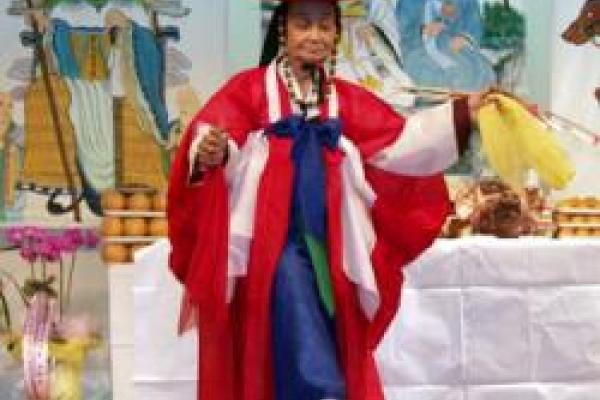
The Institute for Korean Studies presents
"Religion and Politics in Contemporary Korea"
David Kang, Professor
School of International Relations & the Marshall School of Business
Director, USC Korean Studies Institute & USC Center for International Studies
University of Southern California
Flyer: Forthcoming
Abstract: In premodern East Asia, Korea, Japan, Vietnam, and China rarely experienced anything like the type of religious violence that existed for centuries in historical Europe, despite having vibrant religious traditions such as Confucianism, Buddhism, Daoism, and numerous folk religions. How do we explain a region in which religion was generally not a part of the explanation for war and rebellion? A unique dataset of over 950 entries of Chinese and Korean violence over a 473-year span allows granular measurement of religious violence. I argue that the inclusivist religions of historical East Asia did not easily lend themselves to appropriation by political leaders as a means of differentiating groups or justifying violence. Addressing the paucity of religious war in historical East Asia is theoretically important because it challenges a large body of scholarly literature that finds a universal causal relationship between religion and war that is empirically derived mainly from the experience of only Christianity and Islam. In contrast, it may be that certain types of religious traditions are less amenable to mass mobilization for violence. This has resonance in the contemporary era, as well: although Korea is considered a very religious country, the way in which religion and politics interact is different than we expect in the West. Moving beyond Christianity and Islam to include East Asian religious traditions promises both to address a potentially serious issue of selection bias and also to be a rich field for theorizing about the relationship between religion and war.
Bio: David C. Kang is Professor of International Relations and Business at the University of Southern California, with appointments in both the School of International Relations and the Marshall School of Business. He is also Director of USC Korean Studies Institute and Director of the USC Center for International Studies. Previously he was a professor at Dartmouth College’s Government Department and Tuck School of Business (1996-2009).
Kang’s latest book is "East Asia Before the West: Five Centuries of Trade and Tribute" (Columbia University Press, 2010). He is also author of "China Rising: Peace, Power, and Order in East Asia" (Columbia University Press, 2007); "Crony Capitalism: Corruption and Development in South Korea and the Philippines" (Cambridge University Press, 2002), and "Nuclear North Korea: A Debate on Engagement Strategies" (co-authored with Victor Cha) (Columbia University Press, 2003). An article about David Kang and Victor Cha can be found in KoreAm magazine: A Brilliant Rivalry: Victor Cha and David Kang.
Kang has published numerous scholarly articles in journals such as International Organization and International Security, and his co-authored article “Testing Balance of Power Theory in World History” was awarded “Best article, 2007-2009,” by the European Journal of International Relations. Kang has also written opinion pieces in the New York Times, the Financial Times, the Washington Post, and the Los Angeles Times, as well as writing a monthly column for the Joongang Ilbo in Korean. He received an A.B. with honors from Stanford University and his Ph.D. from Berkeley.
